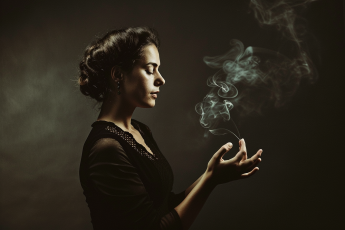In the rich tapestry of American cinema, there is a significant and sometimes overlooked group of women directors. These talented individuals, with their distinct perspectives, have not only transformed the way stories are portrayed on the silver screen but also shaped our perception of the world. This piece honors these trailblazers by exploring their unique paths and the lasting impact they have made on the film industry.
The narrative starts with pioneers such as Ida Lupino, who, in the 1950s, moved behind the camera to become one of the first American women to direct a Hollywood feature. Her films, frequently addressing taboo subjects, paved the way for future generations. Moving ahead to the present era, directors like Ava DuVernay and Kathryn Bigelow have broken barriers. Bigelow’s groundbreaking Oscar win for “The Hurt Locker” in 2010 shattered the long-standing gender barrier in the Best Director category.

But what makes these directors stand out? It is their straightforward ability to create intricate emotional stories that deeply connect with viewers. Consider Greta Gerwig’s “Lady Bird,” a film about growing up that beautifully depicts the complex bond between a mother and daughter. Its triumph stems not only from its narrative but also from its genuine depiction of emotions that resonate universally.
Then there’s the contribution of Patty Jenkins, who revolutionized the superhero genre with “Wonder Woman.” Jenkins’ vision offered a new outlook on a predominantly male field, highlighting qualities such as strength, empathy, and compassion.

These directors have also played a crucial role in showcasing various stories. DuVernay’s “Selma” and Dee Rees’s “Mudbound” are impactful examples of how movies can effectively address social issues and history.
Their impact goes beyond the screen. These women have become champions for gender equality in Hollywood, motivating numerous aspiring filmmakers. They have demonstrated that the director’s chair, previously dominated by men, can and should be a space for varied and inclusive storytelling.

As the stories of these directors are presented on the big screen, they urge us to view the world from a unique perspective, influenced by a diverse range of emotions and viewpoints. They are not simply creating films; they are building a realm of emotions, reshaping the storytelling of American cinema, and motivating a new wave of storytellers.
In honoring these pioneering women, we recognize their impact on the craft of filmmaking and the wider cultural narrative. Their vision, resilience, and skill continue to forge a path towards a more inclusive and diverse cinematic landscape. Their enduring legacy is evidence of the transformative power of storytelling, reshaping our perspectives and emotions toward the world we inhabit. As they shatter boundaries and establish new frameworks, these women directors are not merely participants in the annals of cinema history; they are actively shaping its future.






